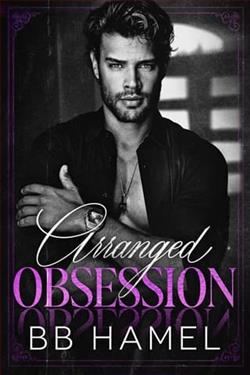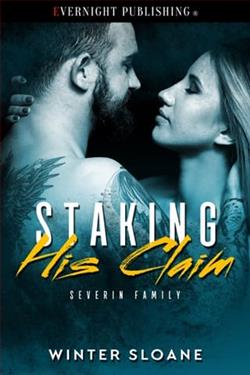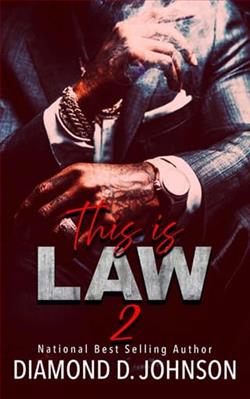Page 44 of Knot Your Romeo
By the time I reach the main strip of town, most businesses are closed except for a small diner with neon lights flickering in the window. Inside it’s light and I can see a few late-night customers nursing cups of coffee, and suddenly I’m desperate for something normal, something uncomplicated.
I walk faster to get there.
The bell above the door chimes as I enter, and I breathe in the smell of coffee and fried food. It’s warm and ordinary and exactly what I need.
“Jolie?” I turn toward the voice and see Professor Benson sitting in a corner booth, a stack of papers beside him and a half-empty coffee cup in his hands. He looks surprised but pleased to see me.
“Professor Benson,” I say, suddenly self-conscious about my windblown appearance and the pajamas I realize I’m still wearing. “I’m sorry, I didn’t mean to interrupt—“
“You’re not interrupting anything important,” he says, gesturing to the empty seat across from him. “Just grading papers and trying to remember why I thought teaching was a good idea. Please, sit.”
I slide into the booth gratefully, and a tired-looking waitress appears almost immediately with a menu and a coffee pot.
“Coffee, honey?” she asks.
“Please,” I say, turning over the mug in front of me.
“You’re out late,” Professor Benson observes after the waitress moves away. “Everything all right?”
I laugh, but there’s no humor in it. “Is anything ever really all right?”
He studies my face with those perceptive eyes. “That sounds like the voice of experience. Rough night?”
“Rough life,” I correct, wrapping my hands around the warm mug. “Do you ever feel you’re stuck in the wrong story, Professor? Like everyone around you is playing by the rules you never learned?”
“Jude,” he says quietly. “When we’re not in class, just call me Jude. And yes, I know exactly what you mean.”
The simple admission breaks something loose in my chest. “How do you do it? How do you live as an Omega in a world that seems designed to diminish us?”
Jude is quiet for a moment, considering the question. “Carefully,” he says finally. “And with the understanding that most people will only see what they expect to see. They see an Omega and they make assumptions. The trick is not letting their assumptions become your reality.”
“But what about connections? Real connections?” I lean forward, desperate for answers. “How do you find someone who sees you as a person first, and an Omega second?”
“That’s harder,” he admits. “Alphas are taught from birth that they’re entitled to Omega attention. Many of them never learn to see us as anything more than biology wrapped in convenient packaging.”
“So what’s the point?” The words come out more bitter than I intended. “Why even try if we’re just going to be reduced to our designation every time?”
Jude’s expression grows thoughtful. “Because occasionally, you find someone who surprises you. Someone who sees past the biology to the person underneath.”
“And when you find that person? What then?” I can’t keep the pain out of my voice. “What happens when they decide you’re still not worth the complications?”
“Then they weren’t the right person,” he says gently. “And you keep looking.”
“I’m tired of looking,” I whisper. “I’m tired of hoping and being disappointed. I’m tired of offering everything I have and being told it’s not enough.”
Jude reaches across the table, covering my hand with his. “Who hurt you, Jolie?”
The gentle question breaks down the last of my defenses. “Someone I thought was different,” I say, tears finally spillingover. “Someone who made me feel seen and valued, right until I offered him everything I had. Then suddenly I wasn’t worth the risk.”
I wipe my eyes with the back of my hand. “He told me he wasn’t ready for an Omega. Like I’m some burden to be undertaken rather than a person to be loved.”
Jude’s grip on my hand tightens. “I’m sorry. That’s not fair to you.”
“None of it’s fair,” I say, my voice steadying with anger. “But I’m done pretending it doesn’t hurt. I’m done being grateful for scraps and making excuses for Alphas who can’t see past their own selfishness.”
“Good,” Jude says firmly. “You should be angry. You deserve better than that.”
We sit in comfortable silence for a while, the weight of shared understanding settling between us. Finally, Jude speaks again.















